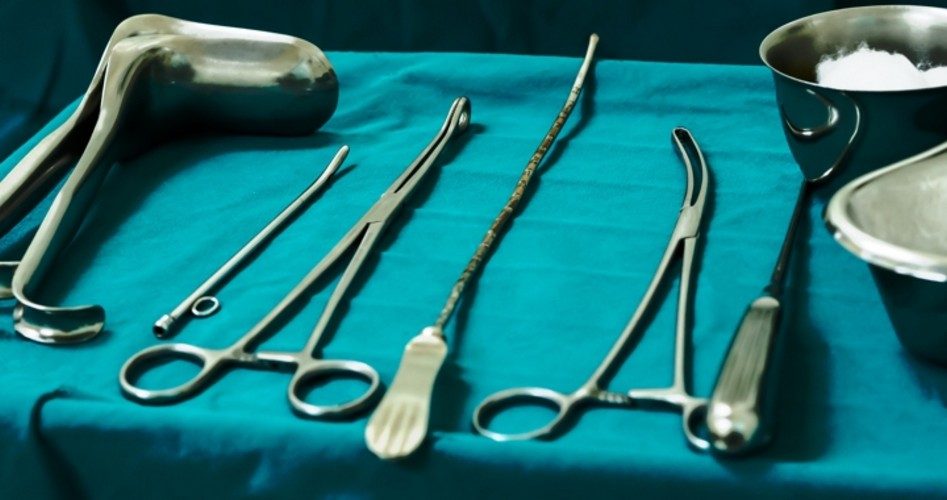
Louisiana Attorney General Jeff Landry has announced the Louisiana Department of Justice may have uncovered evidence that an abortion center in Baton Rouge committed “criminal and professional misconduct” and then tried to hide the evidence of its actions from authorities.
According to the Washington Times, Hope Medical Group for Women hid evidence from the U.S. Supreme Court in its legal challenge against the state’s regulations on abortion clinics. The abortion center has challenged Louisiana law that requires abortion doctors to have admitting privileges at local hospitals, a case expected to be heard by the high court in March 2020.
Under Louisiana’s Act 620, abortion centers are required to make arrangements for admitting women to hospitals within 30 miles in the event of a life-threatening complication during an abortion, Life Site News reports. The abortion industry’s attorneys claim the law creates an undue burden and is no different from the Texas law struck down by the Supreme Court in Whole Woman’s Health v. Hellerstedt in 2016. A district court barred the law from going into effect, a decision that was reversed by the U.S. Fifth Circuit Court, which determined the law differed from the Texas law and was therefore not bound by the ruling in Hellerstedt.
The lawsuit is one of a series filed by the clinic against Louisiana’s pro-life measures passed since 2014. The Times writes,
Louisiana in recent years has passed three laws, virtually all halted by the courts and in various stages of appeal, that attempt to limit abortions. One law extends the waiting period on having an abortion from 24 to 72 hours, while another requires doctors performing abortions to be “board certified in family medicine or OB-GYN, or residents work under supervision of docs with these certifications,” according to the state attorney general’s office.
According to state Solicitor General Liz Murrill, it was during the discovery phase of this case, June Medical Services LLC v. Gee, that the Louisiana Department of Justice allegedly uncovered evidence of criminal activity by a staff member of Hope Medical and withholding of evidence by the clinic.
Catholic News Agency notes under ordinary circumstances, evidence uncovered against the staff member would have prompted a criminal referral, but that has been prevented by the sealing of documents by a federal judge in the case. The DOJ filed a writ of mandamus with the Fifth Circuit, which upheld Act 620, to unseal documents to report evidence of misconduct.
Landry tweeted, “We have a legal obligation to report potentially criminal activity to law enforcement & licensing authorities. Shockingly, Hope Medical is refusing to unseal this evidence & permit us to carry out our legal duties.”
Landry claims the findings may not be unique as the state’s abortion clinics have a pattern of concealing rapes, including of minors based on a survey from 2013 to 2018 which revealed at least 66 abortions were performed on girls aged 11, 12, and 13 who were likely rape survivors.
Additionally, two recently closed abortion clinics have reportedly shredded their documents, state officials claim, leading them to wonder what other criminal activity has taken place.
“I am deeply concerned about the basic health and safety of Louisiana women. And Hope’s continued efforts to hide this information from the Supreme Court and to block reporting to proper authorities casts serious doubt on Hope and its abortion providers’ claims that it represents the interests of Louisiana women,” Murrill said in a statement on the state’s DOJ website.
“As DOJ officers, if we learn of potentially criminal activity during litigation, we have a legal obligation to report it to criminal investigators and licensing authorities. We also have a basic legal duty to protect the public from dangerous behavior when we learn of it. Shockingly, Hope Medical Group is refusing to unseal this evidence and permit us to carry out our legal duties,” Murrill added.
Pro-lifers are hopeful June Medical Services LLC v. Gee could be the catalyst to overturn Roe v. Wade. Life Site News writes,
The case is likely to at the very least impact the Hellerstedt precedent, which has been used to invalidate a broad range of modest abortion regulations as “undue burdens” on women. It’s an open question whether a majority would take the opportunity to make a broader determination as to the underlying legitimacy of Roe v. Wade or Planned Parenthood v. Casey.
The overturning of Roe v. Wade, which imposed abortion on demand across the U.S. in 1973, would mean states could decide their own abortion laws.
In the meantime, the Supreme Court has temporarily blocked Louisiana’s law from taking effect.
Image: Wanmongkhol via iStock / Getty Images Plus
Raven Clabough earned her bachelor’s and master’s degrees in English at the University of Albany in upstate New York. She currently lives in Pennsylvania and has been a writer for The New American since January 2010.



